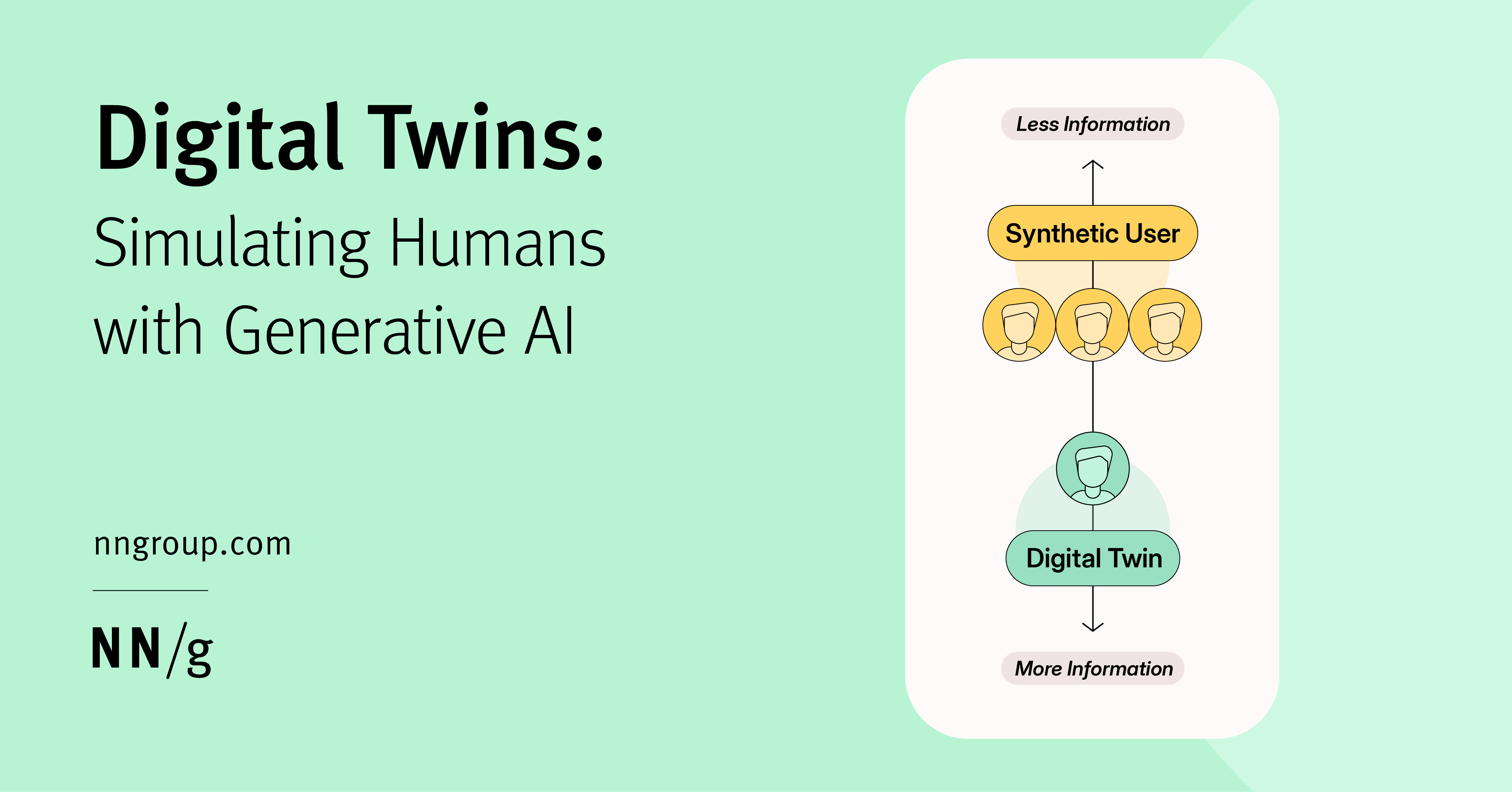
"Digital twins are generative models based on large language models that act as proxies for specific individuals, capable of predicting behaviors and completing surveys."
"Artificial cognitive clones, or digital twins, can respond to questions and interact in real-time, providing valuable insights for user research."
Generative AI has the potential to improve the efficiency of research processes by simulating human behavior through models called digital twins. A digital twin acts as a proxy for an individual, utilizing personal information to predict behavior and respond autonomously to interactions. This approach contrasts with synthetic users, which represent broader population segments and predict group-level behaviors. Digital twins can represent specific individuals, thus providing insights into both individual-level and population-level behavior, making them invaluable for user research.
Read at Nielsen Norman Group
Unable to calculate read time
Collection
[
|
...
]